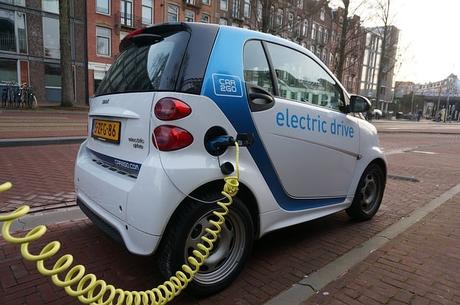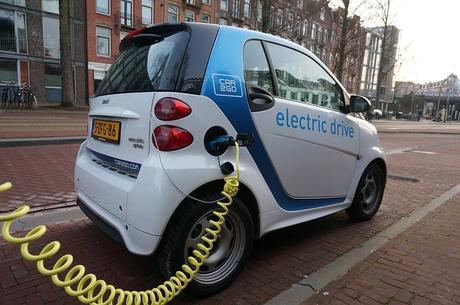2020 will be the year of the electric car, according to automotive analysts. Europe’s, as well as the world’s biggest carmakers, are gearing up with a wave of new models’ launch to lower the carbon dioxide emissions of their products.
While the focus of previous electric models was at niche markets, the names will be familiar for flagship electric models that will launch in 2020, such as the Mini, the Vauxhall Corsa, and the Fiat 500.

According to data firm IHS Markit, for European buyers, the number of electric vehicle (EV) models available will jump from less than 100 to 175 by the end of 2020. By 2025, as per an analysis of company announcements, there will be more than 330 EV models.
As demand for petrol-powered vehicles gradually recedes, the rapidly expanding EV market will require this new supply. According to predictions from Bloomberg New Energy Finance, there will be a rise in UK EV sales from 3.4% of all cars sold in 2019 to 5.5% in 2020 or from 80,000 this year to 131,000 in 2020 and by 2026 electric vehicle sales will account for one-fifth of sales in the UK as per the forecasts. Similarly, LMC Automotive suggests 540,000 electric cars will be sold across the EU in 2020, up from 319,000 throughout 2019.
According to the New European Union rules with effect from 1 January, if average carbon dioxide emissions from the sold cars rise above 95g per kilometer, the carmakers will be heavily penalized. Exceeding the said limit, a fine of €95 (£79) will be charged per gram more than the target, multiplied by the total number of sold cars.
The automotive consultancy Jato Dynamics illustrated the extent of the change required to be incorporated by the carmakers over a short period. Jato analyst Felipe Muñoz said as companies will continue selling profitable internal combustion engine cars, so there will still be hefty fines, and carmakers will struggle to bring down EV prices.
“It is very difficult for carmakers to change manufacturing infrastructure in such a short period of time,” Muñoz said.
However, after the Dieselgate scandal, in which Volkswagen and Daimler were shown to have deliberately cheated emissions regulations, some analysts take a more skeptical view of the industry.
The carmakers were successful in lobbying for a rule that makes the cars emitting 50g of carbon dioxide, and less per kilometer are eligible. Every electric vehicle sold counted as two cars, making it easier for carmakers to meet their targets, even though average emissions from their cars are actually higher than the stipulated rules.
“A lot of action has been postponed until [the carmakers] need to,” said Julia Poliscanova, the director of the clean vehicles at the campaign group Transport & Environment. “What they’re planning to produce is more or less what they need to hit their CO2 targets.”
Carmakers are ready with multiple new electric car models for sale to qualifying the EU regulations just in time. The first of Volkswagen’s ID.3 cars rolled off a new electric production line in Zwickau, eastern Germany, in November, and that will be able to produce 330,000 vehicles a year by 2021. In March, the first of BMW’s Mini Electric models, made in Oxford, will arrive in showrooms. France’s PSA Group’s Vauxhall will start production of its Corsa-e in January, and sales to begin in March.
The conventional fossil-fuel engines, as well as hybrids using both battery and internal combustion power, still restricted the sales of pure electric vehicles. However, the surge in an electric car is likely to reduce prices as carmakers compete for buyers.
As per the estimation of consultants at Deloitte, the market will reach a tipping point in 2022, making the price of an electric model at par with its internal combustion engine counterparts. The International Council on Clean Transportation suggested in separate research that this was already the case in February in five European countries, including the UK.
In the UK, until the development of charging infrastructure spreads across the country, many are anxious about the short range of electric vehicles on a single charge before buying them. However, investors are now “acutely aware” of the need to increase electric sales and comply with regulations of emissions after Dieselgate scandals, according to Arlene Ewing, a director at wealth manager Brewin Dolphin.
“Brand is all to a carmaker, and failure to meet the deadline may adversely affect their brand, reputation, and, ultimately, sales,” she said. “We have seen this before. Consumers tend to be brand loyal.”
Tom Leathes, the chief executive of Motorway, a rival car sales platform, said the market was growing “extremely fast,” along with the complications in selling cars that include leased batteries separately.
“We expect this segment to grow year on year for at least another 10 years as electric’s share of the new car market continues to grow exponentially,” Leathes said.
Five electric cars to launch in 2020
Volkswagen ID.3
Cost: under £26,000, range: 205 miles, due in early 2020
Vauxhall Corsa-e
Cost: £26,490, range: 209 miles, due in April 2020
Tesla Model Y
Cost: about £30,300, range: 230 miles, production to start in summer 2020
Ford Mustang Mach-E
Cost: about £35,000, range: 370 miles, expected late 2020
Fiat 500 Electric
Cost: about £28,000, range: TBA, due in late 2020


